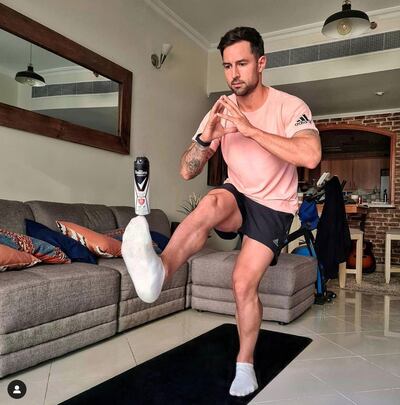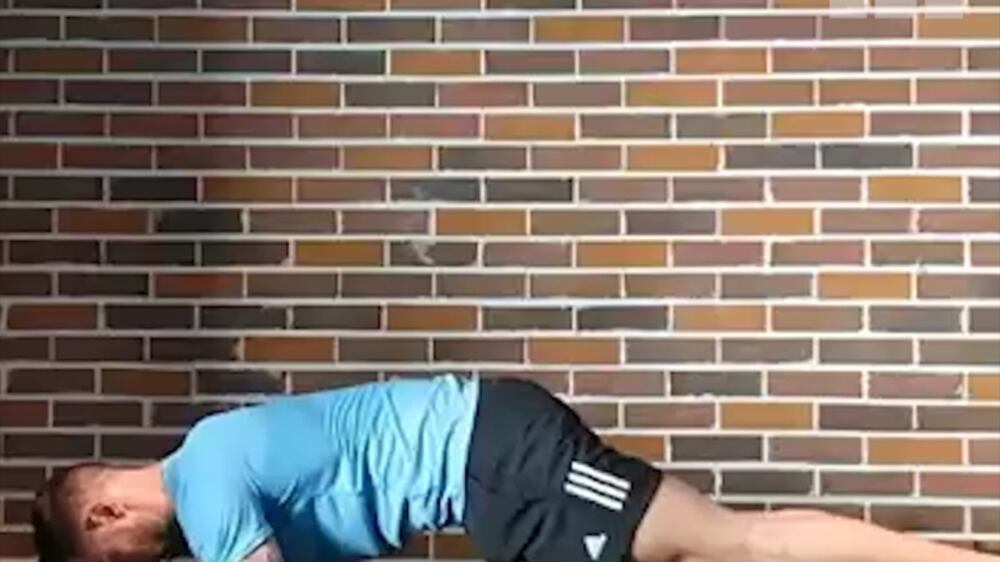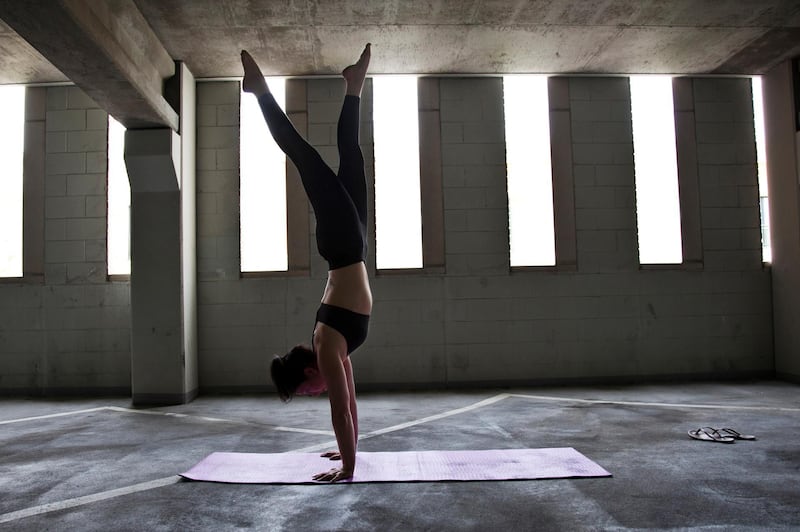Those wanting to stay fit during quarantine have had to get creative with their workout regime: HIIT sessions on Zoom, YouTube Pilates demonstrations and classes held on Instagram Live have fast become the new normal.
But many have shirked the living room workout in favour of the building basement or car park, in search of a few extra metres in which to run back and forth.
So is this allowed? It seems so, but it also appears to be something of a grey area. Many have spoken on social media about having been warned not to work out in basements by their building management.
The National called Dubai Police's leave permit hotline (800 737648) on three separate occasions throughout the day to ask whether this was allowed, and they all said that remaining in your building was allowed in theory, but whether or not you could work out in the basement or car park was down to building management discretion.
So should you turn to your trusty car park for a round of shuttle runs? Or should you be wary of the recycled air and stick to your air-conditioned living room?
We’ve enlisted the help of a health professional and two fitness experts for advice ...
Basements and stairwells can be a breeding ground for germs
Dubai personal trainer Peter Barron says basements and stairwells are best avoided, for many reasons.
“Basements are normally warm, moist areas – they are a breeding ground for fungus and things like that – and [working out in them] can cause respiratory problems, dizziness and tiredness,” he says. These are usually enclosed spaces, and the lack of air circulation can be a problem.

Humidity and a lack of air circulation can combine to make basements and stairwells an “ideal atmosphere” for bacterial growth and mould, said Dr Moath Alnemrawi, a general practitioner at Medcare Medical Centre in Sharjah.
This puts people’s respiratory systems at high risk for breathing issues, such as asthma, allergic rhinitis and other problems.
“Stick to simple exercises while we’re at home,” Barron says. “There’s no need to put yourself at risk by exposing yourself to germs and bacteria.”
When you’re working out, air circulation is important
“Stairwells are the same. If there’s no natural air getting in, chances are it’s going to be filled with dust,” Barron says.
While workouts in your car park or basement can be done every now and then, Barron says he’s heard many people have now turned to doing it every day as a rule, which should be avoided.

He says do it “on occasion if you have to”, but that it’s better for people to use space in their living room.
Alnemrawi agrees. He says rising carbon dioxide in spaces without good air circulation can put people’s health at unnecessary risk and can be a source of headaches and dizziness.
Beware of Covid-19 transmission in stairwells
Alnemrawi says the risk of being exposed to the coronavirus is much higher in places such as stairwells, where many people repeatedly touch the same railings and door handles, and there is a lack of ventilation.
The more people using places such as these, the higher the risk of coming into contact with the virus.
So where should you be working out at home?
A balcony is a good option, where there is plenty of fresh air, and if that’s not possible, exercise in your apartment or living room using YouTube videos or apps.
Do you wash your gym shoes often?
If not, perhaps you should.
Francois Fourie, a HIIT instructor at The Platform Studios in Dubai, says washing your gym shoes is an important measure to stop the spread of germs if you’re going from indoors to outdoors.

“Hygiene is very important in these times and every step you take should be a clean one, especially indoors,” he says.
Headaches and tiredness when at home
Barron says he has fielded a lot of questions from clients and people on social media about getting more frequent headaches since the pandemic started, which could be down to not getting enough fresh air and water.
“This could be down to dehydration, but it could be down to training in a room that doesn’t have any natural air coming in.”
For that reason, cracking open a window or being near air-conditioning is a must.
Make sure everything is clean
Fourie says there are several ways you can optimise home workouts so you’re not putting yourself at unnecessary risk, without the professionals being on hand to steer you in the right direction.
Speaking of dust, he says ensuring your air-con is cleaned on a regular basis is a good way to prevent breathing in too much dust and unwanted particles when you’re getting a sweat on, and also living and working in, your apartment.
Keeping your windows open at times where it’s not too hot and keeping air circulated is also important. As for an ideal workout temperature, Fourie says between 20 and 23 degrees Celsius.
All you need is a living room and a mat
Barron has had to adapt his own business to operate online during the pandemic.
He now holds online workouts with clients, and posts daily exercises to his Instagram page for his 127,000 followers to try at home. He has also launched his own training and meal plan business, Starcore Fit, which is operating primarily online.
His own workouts consist mostly of body weight exercises and runs in his living room, and this is what the wider public should be trying to emulate, he says – especially with the wealth of content now available free online at the tap of a finger.
Working out at home is all about “working smarter”, and doing plenty of body weight workouts that don’t require outside equipment.
Five equipment-free exercises to try in your living room:
Five equipment-free exercises to keep you sane








